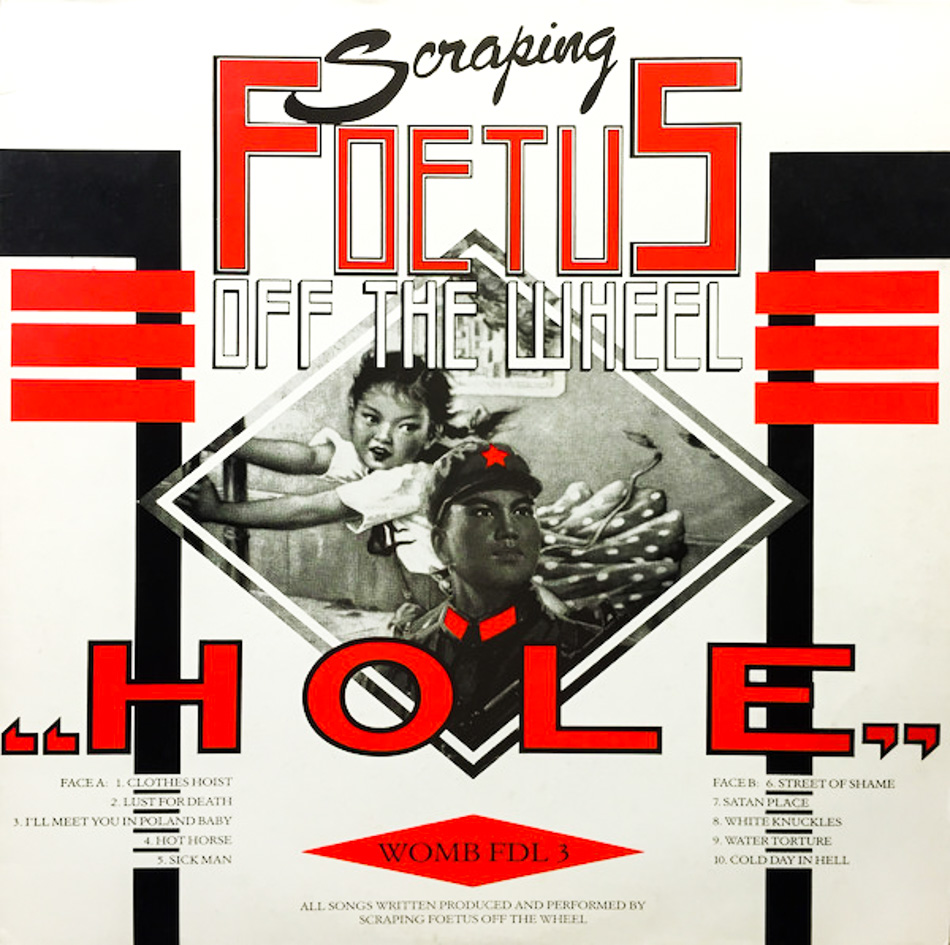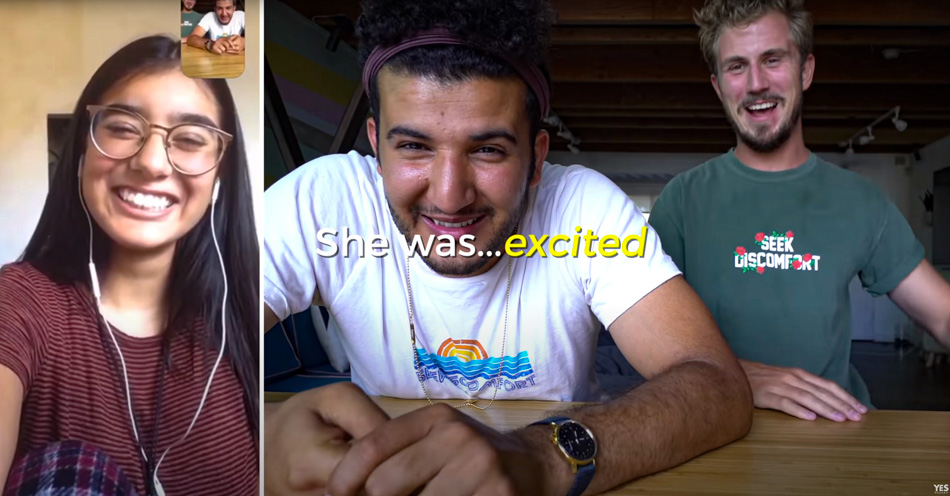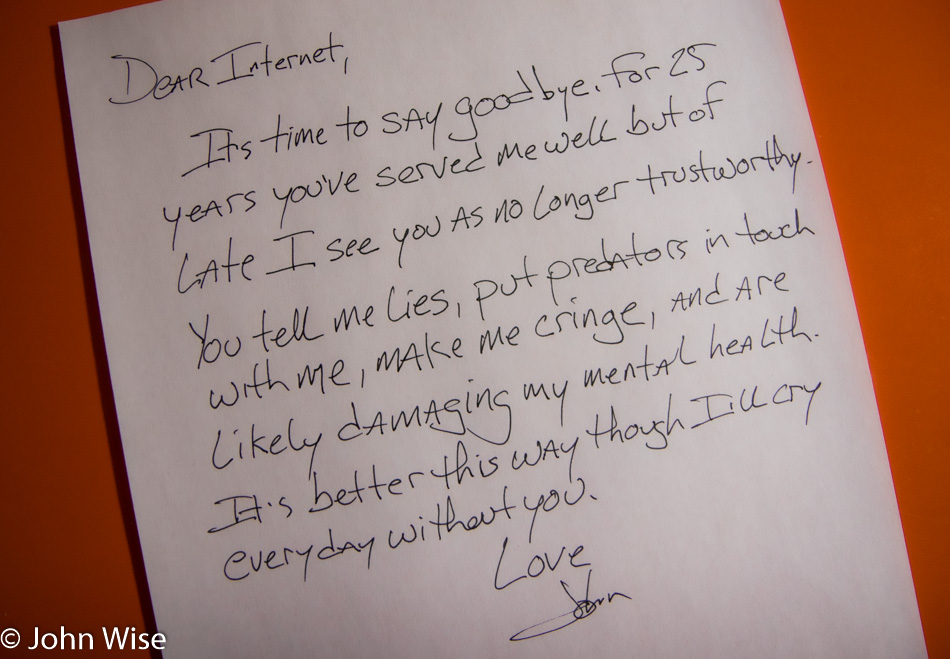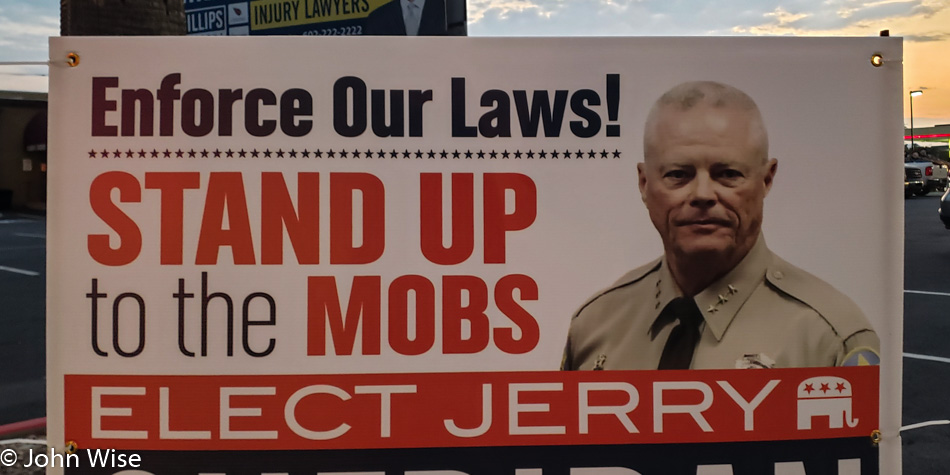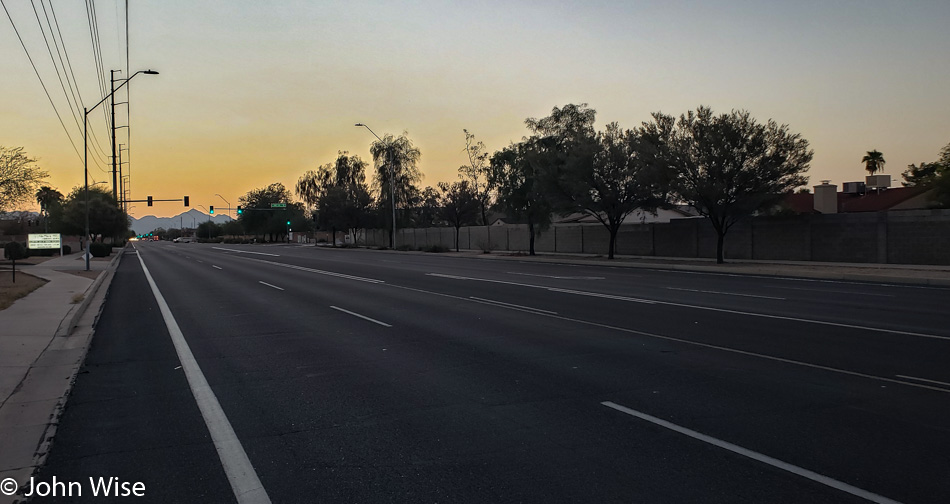
The city we live in is a type of economic prison fenced by roads that act as walls to both a sense of prosperity and mobility. In Germany, autobahns often have the same width as this very common main street that cuts across our neighborhood in Phoenix. At the distance of a mile between each artery, these 25-yard/23-meter wide streets dissect the entirety of our city. It is a smart and relatively easy layout with 17 east-west corridors running from the 101 freeway in the north to the 17 freeway in the south. The city is cut in half by Central Ave, running north and south paralleled by numbered Avenues on the west side of Central and similarly numbered Streets on the east. The grid pattern of avenues and streets forms squares that are roughly one mile or approximately eight blocks long. For example, driving west on Thunderbird Road from its corner with 43rd Avenue (west of Central), you will travel west eight blocks before hitting the next north-south thoroughfare of 51st Avenue. All east-west roads north of Washington in downtown Phoenix are designated as being north, while south-of-Washington addresses are on southern numbering. To continue with the logic of the grid, addresses on the north side of streets are numbered evenly while the southern side is odd; similarly, the west side of a street is even, and the east side is odd.
Seems perfectly convenient, doesn’t it? Well, it is if you are in a car. Before COVID-19, we were always in a car. When we’d see someone waiting at a bus stop, we’d pity the poor soul who had to endure the extreme weather and the homeless who use the stops and the bus as shelter. Gridlock would make the bus appear lumbering and inefficient as they seemed mostly empty. For those riding bicycles, we were aghast at the distances in a city that is approximately 20 miles (32km) by 32 miles (51km) the bicyclist might need to traverse. We only knew how inhospitable our city was to alternative travel from the air-conditioned comfort of our car.
Okay, for the sake of honesty, walking around our city from October through the end of April would probably be fine because of the nice weather and little rain; of course, we don’t see any snow here in our corner of the desert. But after months of driving, we are so conditioned by being in the car for convenience and speed that it has become impossible to consider traveling any other way.
After nearly six months of walking every day without fail, I’ve come to believe that we could get around on foot, e-bikes, and scooters if it wasn’t for the fact that our antiquated grid system here in Phoenix is effectively a prison. We are locked into 1-mile squares where escape is treacherous. Sounds dramatic? Let me explain. For a good while, we walked west of home to a smaller secondary street and headed north to an even smaller tertiary street that connected to a main artery that would bring us back home. This mile loop served us during the cooler months as we could walk it multiple times a day with the benefit of never having to cross the superhighway that widens to three lanes in each direction in front of where we live.
As the days were heating up with the approach of summer, we felt that we needed to change how we accumulated our miles as we’d figured it would be too hot to walk around the block at midday. So, we started waking up at 4:50 to get a 3-mile walk finished before the heat became too oppressive. Walking our 1-mile loop three times in a row would get boring, so we committed to crossing the major intersection nearby. This is a dangerous proposition as drivers turning corners are not accustomed to people in crosswalks as nobody walks in Phoenix, especially at 5:15 in the morning. We had to be sure to make eye contact with people wanting to turn left as they were the most dangerous as they raced to beat a car coming right at them and their impatience to wait another 10 seconds. For those wanting to turn right, we could tell that they were measuring where we were in the crosswalk and calculating if they could whip around the corner before we got too close to reaching our objective, and that’s if they even saw us. This crosswalk was and remains our gauntlet.
Once we are across the street, we now have a mile to the next major street, half a mile to a secondary thoroughfare, a mile back to the really big ugly street, and then a half-mile home, so in about an hour by 6:15 we have our first 6,500 steps and feel like we did a little something to help our metabolism.
Being out on these streets, even though we are, for the most part, now safe from crossing the danger zones until we have to cross the street to get home, things are not always very pleasant. Motorcycles, muscle cars, and diesel trucks are the first order of discomfort. When a nearly unmuffled Harley opens its throttle wide as it races down the street, enjoying that burst of speeding up from 20 mph to 80 mph as quickly as possible before having to slow down, they can emit a roar that to the person riding the bike must feel like the exhilaration of power. To those on the street, it’s a scream that can literally hurt the ears. I know, man-up snowflake, but consider this and reference what I said in the first paragraph: we are effectively walking on the shoulder of an autobahn or freeway. Sure, we have sidewalks as some perfunctory obligatory nod to pedestrian civility but walking on poop and trash-strewn slivers of concrete next to cinder-block walls is anything but nice.
Then I consider the people brave (stupid) enough to pedal their unprotected asses right next to drivers behaving as if they were on a stretch of race track that was going to award them eternal bliss if they could just make the next light while still slowing down just enough so that if a police officer happened to be waiting at the intersection, they’ll be spared a ticket before they mash down on the accelerator again and race for the next major intersection a mile further. Those bicyclists, if they are lucky, might have 3-4 feet of a lane carved out for them, but the cars that are less than that away are traveling next to them often at speeds from 55-65 mph or 90 km/h to 105 km/h.
These broad streets, where uncontrolled speeding is the norm, and unregulated intersections encourage serious risk-taking, can be considered playgrounds for those in vehicles but make for a hostile environment for those who are waking up to an enjoyable pace of getting around by alternative means. Where I thought it impossible to endure the distances or the extreme heat, I’ve learned something different, and I’m not alone as we’ve seen a big increase in foot traffic in our neighborhood, and I’m hearing from others that they see similar trends in their own areas. I could see Caroline and I enjoying e-bikes here in the city, and maybe we’d only be really comfortable with them ten months a year, but imagine the fuel and pollution savings. The problem is that we wouldn’t do this without dedicated and isolated bike lanes that remove us from being so intimate with race cars.
But who am I fooling? This won’t happen in my lifetime, and that’s tragic as I might only have about 20 years left, and I’d like those to be the best they could be. This brings me to my original premise that this grid layout is a prison. It’s difficult at best to get from place to place, it’s downright discouraging and feels 100% safer being in a car. Moving somewhere bike-friendly is not really an option as those places are often economically depressed in some way with poor weather and expensive housing; I’m referring to Portland. And while Seattle is booming economically, it’s incredibly expensive, only has 152 sunny days per year, and is reported to be one of the worst places for people experiencing depression.
Europe is an option, and while we are working on our strategy to get there, it’ll take time while we here in America drag our feet with issues too overwhelming and impossible to find consensus for improving the quality of life and so we’ll just skip the dialog and hope the population quickly returns to having their heads in the sand, or worse.
